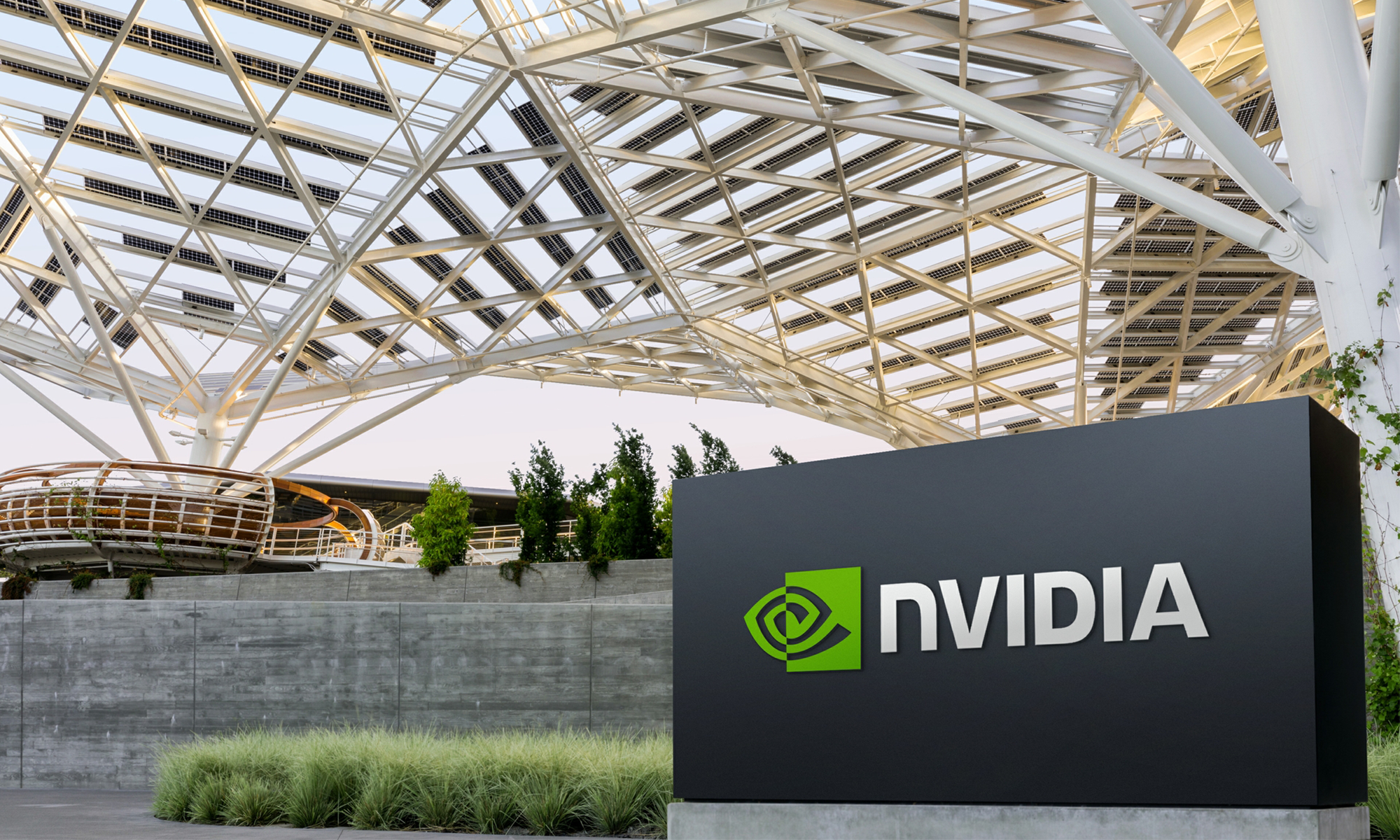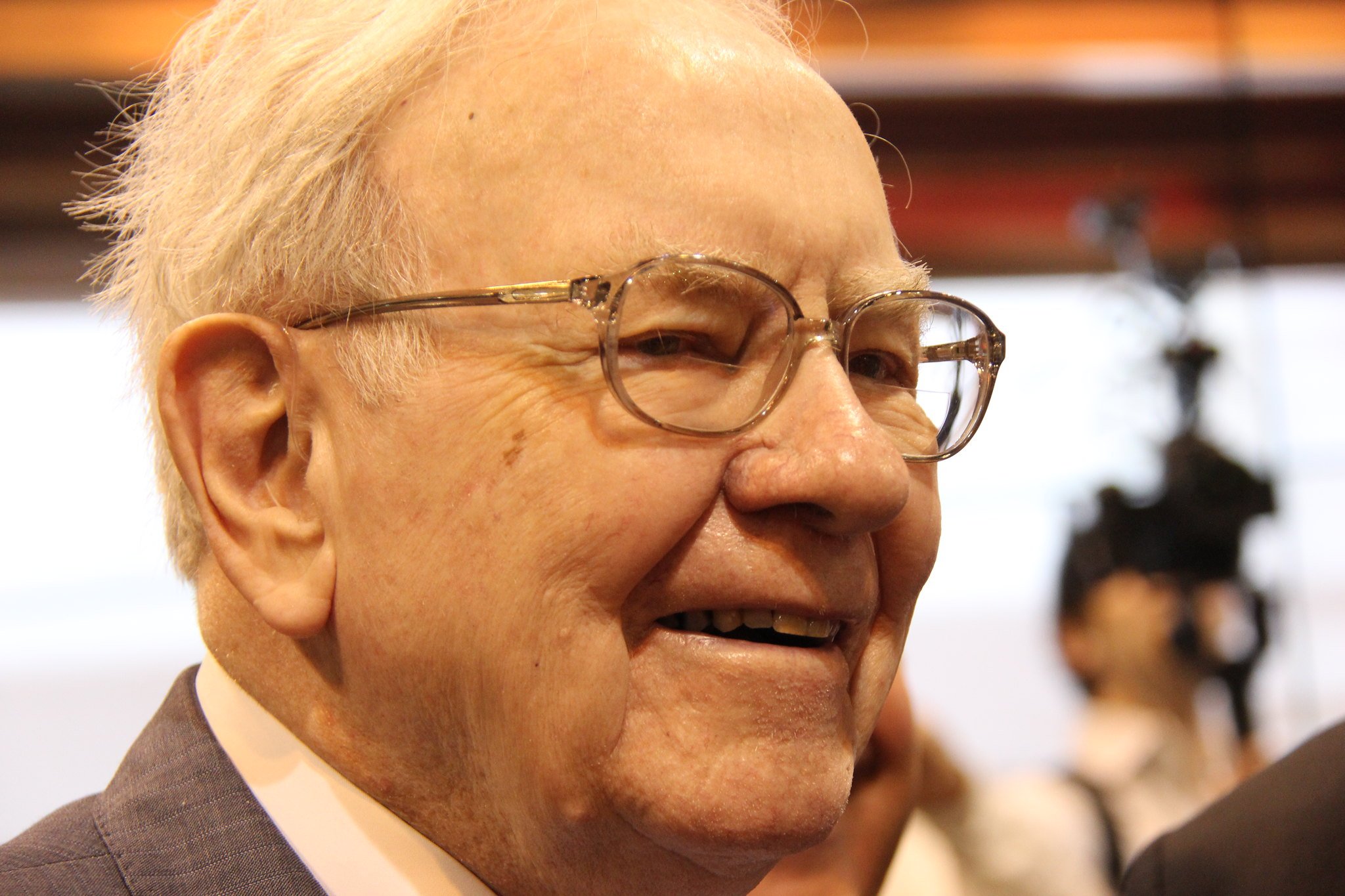It's that time of year, and it looks like the market is giving Nintendo (NTDOY 3.11%) and Take-Two Interactive (TTWO +0.15%) the gift of another chance. In this week's episode of Industry Focus: Tech, analyst Dylan Lewis and Fool contributor Dan Kline look at the recent success stories at Nintendo and Take-Two.
Nintendo's future looks a lot brighter now than it did during the Wii U fiasco. Meanwhile, Take-Two is busting all kinds of records with Red Dead Redemption 2, a game that delivered exactly what the company needed in the shadow of the GTA franchise. Plus, the hosts talk about Amazon's (AMZN +0.18%) increasingly fervent push to get Alexa devices into customers' homes -- but for what reason? Are they actually paying off? Tune in to find out more.
A full transcript follows the video.
This video was recorded on Dec. 14, 2018.
Dylan Lewis: Welcome to Industry Focus, the podcast that dives into a different sector of the stock market every day. It's Friday, December 14th, and we're talking holiday gifts. I'm your host, Dylan Lewis, and I'm joined on Skype by Fool.com's Dan Kline. Dan, what's going on?
Dan Kline: Hey there, Dylan! How are you?
Lewis: I'm feeling the holiday spirit a little bit. I'm starting to get ready for the onslaught of gifts and eggnog. How about yourself?
Kline: I was going to say, I saw you Monday. You didn't look that festive, to be honest.
Lewis: What a transformation can happen in a couple of days, right?
Kline: Now you're wearing the ugly sweater, you've got [the] garland on and things like that.
Lewis: Oh, yeah. Full spirit. If you could see the video, Dan, you would know.
I think the goal today is we're going to talk some hot holiday tech gadgets, some gifts, and what they might mean for the companies that make them.
Before we get into that, though, what was your favorite gift growing up? What was the thing that you look back on and say, "That was me as a kid living the dream"?
Kline: It's always embarrassing to me when I bring up something that you probably won't even remember. My by far best gift ever was the Atari 2600. And for one reason: Pac-Man. Previously, Atari 2600 games -- I didn't have one when it first came out -- were very blocky, they were like extended versions of Pong. They weren't games like you had in the arcade, or in my case, the hockey rink, where there'd be four or five video games. So being able to play realistic Pac-Man at home. I think my brother and I -- and I have no idea how old I was, maybe eight or nine, maybe a little older. We probably stayed up to four in the morning just playing. I would say it was about 75% as good as the arcade. Then maybe a year later, when Ms. Pac-Man came out, it was the first, like, "Wow, this is exactly the same." How about you?
Lewis: For me, it's kind of similar. I'm also going to go with the video game space, slightly different generation of video games. For me, it was always the most recent update of the Madden franchise. I was a huge fan of EA Sports' Madden games. I had an aunt that always got it for me. It was the old reliable Christmas gift coming in. Producer Austin Morgan, what was your favorite gift as a kid?
Austin Morgan: I think the best gift that I got, I was like 13, and it was a shot in the dark, like, "Oh, this would be sweet to have." It was a gas-powered scooter that went like 30 miles an hour. I don't think my mom knew how fast it went, but she got it. And it was well-used, I'll say. [laughs]
Lewis: Well-used. You were ahead of the curve. Now we see all of these scooters are so popular on sidewalks in Washington, D.C.
Morgan: They would not be popular if they were these. It was loud. All of my neighborhood hated it, because I would just ride it after school for hours.
Lewis: Well, you were ahead of the curve, they just had to make the switch to electric, right?
Morgan: Yeah. Which is nowhere near as fun.
Lewis: [laughs] It's funny that we both mentioned video games as being things that we enjoyed from the past. Two of the things that we're going to focus on are in that space, Dan. Why don't we start with the Nintendo Switch? I'm sure that this is something that is on a lot of holiday wish lists this year.
Kline: It is. And let me tell you, not only was I an early adopter of the Switch, I actually paid slightly extra. Remember when there was a shortage of it a holiday season ago? I paid, not a lot extra, but maybe $15-20 extra to get one for my son, thinking that this would be the video game system that brought the whole family together. [laughs] In reality, it perhaps brought my son and I together a little bit. We'll play some Splatoon, we'll play Mario Kart. My wife perhaps played one round of Mario Kart.
The Switch -- we'll get into the business aspects of it later -- it is what it promises to be. It is a game system that does not require a high level of learning. You can pick up most of the games and just play them and have them be fun. A lot of the games don't give you a huge advantage for being younger and good at gaming. Now, Fortnite is on the platform, there are lots of traditional games on the platform. But a lot of the Nintendo software is this sort of "hey, it's fun" video game system.
Lewis: And that's what Nintendo has been so good at for such a long time. They've been able to make these very accessible games. The Wii is the perfect example of that.
Kline: This is the real successor to the Wii. When the Wii came out, it was the video game system that you didn't buy instead of the current Xbox or PlayStation, you bought it in addition to. And if you had kids, you could play with little kids. If you had your friends over, you could play Wii Tennis or something and have it be a little bit of fun. The console after that, the Wii U, was just too complicated. It overshot things. It's sort of a variant of what the Switch is. But what the Switch is, it has a portable screen. You can play like a tablet, hold it up in front of you, two controllers on the side. You can also put it on a stand and use that screen, or you could plug it into your TV. It makes it this incredibly versatile game system. And honestly, it's fun to play in the TV, but it's also really fun to play in the backseat of the car, too.
Lewis: This is the console that Nintendo really desperately needed. You mentioned that they overshot with the Wii U, and maybe didn't quite nail the functionality. We're seeing already that the Switch is selling quite well. It's already outsold the Wii U. And it looks like the holiday season's going to be blockbuster for this console.
Kline: This was a game saver for Nintendo. They were downplaying it, but the reality was, the Switch is about 70% of their sales, and sales skyrocketed. What happened was, they were looking at getting out of the console business. When the Wii U failed, you started hearing a lot more talk about them licensing to other platforms. Nintendo owns very strong IP, but it's hard to think that Nintendo games on Xbox or PlayStation were going to sell as well as they do on their own dedicated platform, where each release is a very, very big deal. So, this was kind of a last chance. And it came out strong. But last year, when it sold two or three million units, there were shortages. That said, OK, there's a hardcore Nintendo base. What we didn't see until this year is, this year, it's on track to sell about 20 million units, the fastest video game console to sell 20 million units. That puts it well ahead of where PlayStation 4 and Xbox One were at the same place in their development. If you assume maybe an eight-year lifespan on a console, maybe even a little longer, that gives Nintendo six, seven more years to wring out some life from this and maybe figure out what the successor to it is.
Lewis: You mentioned that 70% figure of their top line being Switch-related. That's a blend of hardware sales and software sales. This is the kind of thing where if you get that installed base, then you can just enjoy the fact that they're there. You can sell them games, you can work with the Nintendo universe, but you can also bring other stuff into the mix.
Kline: Up until this Christmas, when they sold some limited Mario Kart bundles, and maybe a couple of other game bundles, when I bought my Switch, it came with nothing. If you assume that the console makers break even on the console, I had to immediately go out and buy a game. I probably immediately went out and bought four or five games and have since bought maybe another five or six this year. It's an absolute moneymaker. Something like Mario Kart is a lot like Madden. You can't put a new one out every year, but if you put a new Mario Kart out every three years, people are going to buy it. The big hit right now is Super Smash Brothers, which is obviously another sequel. Then, they have two Pokemon games. Not only are those outselling previous Pokemon games, they're drawing in some of the adult audience that plays Pokemon Go. I play Pokemon Go, but have not bought the Switch game yet, though.
Lewis: This is the hit that Nintendo desperately needed. You look back at this company, they struggled for quite some time. You mentioned before, they were lost a little bit. Over the last couple of years, the points of enthusiasm for them have been the Pokemon Go craze, which hit in 2016. You look at Nintendo's stock, and there's a distinct spike right around where that started to catch on. I think what people quickly realized was, "This doesn't quite have the staying power that we thought it might." I think it's really good for Nintendo that they have this new flagship console, and by all indications, sales look great for it.
Kline: Do you remember the Sega Genesis? Are you old enough to remember that one?
Lewis: My first console that I owned was a PS2. And the reason for that -- yes, I'm younger than you, Dan -- but the reason for that was, my parents insisted that I had to buy my own first console.
Kline: Ah, OK. So, in 1991, when I was in college, '91 to '95, the Genesis was pretty much the dominant console. It's what we played Madden on. That was absolutely the dominant game. And the sequels to that failed. If you look at where Sega is, where it basically owns a little intellectual property, and it's kind of just a game brand. I'm not even sure how the ownership works anymore. Nintendo would have been a bigger version of that. It has stronger licensing power. The upcoming Nintendo Land at Universal Studios, obviously, is going to bring in some money. But, the 3DS is a slowly dying system. Nintendo might have been just an intellectual property and a software company.
Lewis: And look what they've managed to do. I think, safe to say that if you see Nintendo Switches outpacing even the estimates, which are pretty impressive, it's going to mean good things for Nintendo down the road.
Kline: Absolutely. They honestly haven't even gotten to the life cycle where PS4 and Xbox One now cost much less than they did it launch. You got some bundle deals this holiday season, and maybe some gift-card-back deals, but you are not getting much in the way of a deal. And, the whole online universe for the Switch has just barely launched. That's going to be a revenue center, as well.
Lewis: Dan, we can't talk holiday gadgets without doing a little bit of an update on Amazon devices, right? If you go over to Amazon, and you look at the best-selling stuff, it's a lot of Amazon devices.
Kline: I think nine of 10 over the five-day Thanksgiving sales period, from Thanksgiving through Cyber Monday. This was the first year -- and I'm speaking very anecdotally. You and I put together a lot of the Black Friday coverage. This is the first year that Amazon unabashedly pushed its own products. They want you to have an Echo or an Alexa-enabled Fire TV product. The deals were incredible. $24 Echo Dots. I don't know about you, I have three bedrooms and five Echoes.
Lewis: I don't actually have any smart home devices. I still am slightly wary of the security issues and the invasiveness of having these devices in my home. But, there are a lot of people who have made that plunge. And you look at that price point, especially compared to some of the other players in this space, Amazon has made it so cheap and so easy to have a fully integrated full house smart home solution.
Kline: Except -- and I think it's a big except -- most people aren't using it as Amazon would like you to use it. I bought the first full-size Echo, it was $99 for Prime members. That's still the one in my kitchen. I have Echo Dots in every other room in my house. And I use them 99% as stereos. "Alexa, could you play Bruce Springsteen?" "Alexa, could you play Buffalo Tom?" Whatever it is. I might listen to a podcast. I might ask for the weather. I am not using a single smart home feature. I've maybe used The Motley Fool Alexa skill a handful of times because I know it exists.
But this idea that Amazon wants you to say, like, "Alexa, please replace my paper towels," that just hasn't happened yet. So, yes, they're dominating the hardware market, the install base, but it's not driving sales yet.
Lewis: Way to sneak a Motley Fool Flash Briefing plug in there. I appreciate that, Dan!
Kline: I get a mug from Chris every time I do that.
Lewis: [laughs] I think the struggle, really, is that voice search isn't quite there yet. Ideally, Amazon would like to see people using this for commerce. That's the natural next step of this. But there's also this possibility that voice search takes over what mobile search has become, where we have all this information at our fingertips. The difficulty is rendering results for voice search is a lot different, and it's not nearly as lucrative for businesses because it's harder to serve up ads.
Kline: Amazon is also competing with itself. I order from Amazon this time of year maybe twice a day between random gifts and stuff I figure I need. When you go into the app on your phone, you can type in whatever it is, "wireless headset," and see exactly what you're getting. In my kitchen, if I say, "Alexa, reorder spaghetti sauce," maybe it buys the spaghetti sauce my wife likes and not the one I want. That's very easy to do on a phone. There's not really a driving incentive for me to do it via voice search.
It might be something that, maybe my son, when he gets buying power, would be more willing to do that. In his room, I hear him doing more ridiculous Alexa searches than, maybe, I do. And I'd like to have a smart home, but it still feels like a gimmick to me to say, "Alexa, lights on." My light switch is right when I walk in, I don't need that.
Lewis: The way I'm looking at this from a big picture strategy perspective is, Amazon is getting the devices in people's homes and getting people used to interacting with them. I think that they know that it's a long putt to get them to the point where they're really using stuff in a way that's profitable for the business. They probably about break even on a lot of these devices that they sell. If it means that they're a little bit more engaged with the service, maybe they wind up ordering a little bit more on Prime because they own those devices, then that's a nice cherry on top. But for them, this is a long bet on smart home and being the installed player there.
Kline: I agree. And by moving early, they priced everybody else out. Apple, it's hard to compete with the iPhone because of the base it has. Amazon really came to this first, and it's cheap, and I don't think you can do better. The Apple HomePod is dramatically more expensive, hundreds of dollars more expensive, and there is nothing it can do -- maybe the audio quality is a little better. But I love my Echo. When I moved from Connecticut to Florida, I didn't bring my stereo, because the Echo was more than good enough.
Morgan: I would strongly disagree with that.
Lewis: [laughs] Audiophile Austin Morgan has some fighting words for your audio opinions.
Morgan: If you're using your Alexa to tell your stereo what to play, great. But those Dots sound like garbage.
Kline: No, not the Dot. The full-size Echo.
Morgan: Still garbage.
Lewis: Well, Austin might be a bit of an audio snob. If you guys wouldn't mind going back to your respective corners, we're going to talk about one more holiday gift.
Alright, you guys settled down? [laughs] Can we get on with the second half of the show? Dan, we've got one more to touch. This is going back to the video game space and Red Dead Redemption. This is, I think, really, the Chinese Democracy of video games. It was this long awaited, a lot of hype --
Kline: Except it's a hit.
Lewis: That's true. It's hard to argue that this is a wildly successful game. For the unfamiliar, Red Dead is from video game company Take-Two in collaboration with Rockstar, one of their subsidiaries. This was released in late October, a little bit before the holiday season. But we got a glimpse of some of the success that it had already in some conference call conversations with management. I'm just going to drop a couple of quotes here, one of them from the most recent call. "The title has set numerous records, including achieving the biggest opening weekend in the history of entertainment with over $700 million in retail sell through during the first three days. Red Dead Redemption 2 sold more in units in its first eight days than the original blockbuster Red Dead Redemption sold in its first eight years." And, just to back that up a little bit more, as of today, the title has sold over 17 million units worldwide. This is a wildly successful game. I think, given the launch time, a lot of the people that are hardcore fans and really wanted it probably already have it. But I imagine that this is something that a lot of people are still asking for for the holidays.
Kline: Just think about where that number would place it on movie releases. It would make it a top five film release this year, and it's going to well surpass that.
I think what's really interesting about Red Dead Redemption -- and I will be honest, I am not capable of playing games like this. I have a 14-year-old, and that's how I know these things. We're starting to see this new genre of games, where the game comes out, and then it continues to develop. What's been very interesting about the Red Dead launch cycle is, there's actually been some pushback from the hardcores on the gameplay, on the money-earning system in the game. And they've actually made some changes. These games are fluid now, where they have a two or three-year lifespan. We know there's paid downloadable content. You can buy Deluxe editions, where you get all of that for a year, things like that. But they're actually making some core changes to the gameplay based on some of the early feedback.
Lewis: Yeah. More and more, we are seeing the video game publishers focus on the micro-transactions that can happen within games and some of these add-ons that happen in the online worlds for these games. I think Red Dead Redemption is a perfect example of that. If you're a Take-Two shareholder, you have to be thrilled, because this was a release that was twice delayed. And this was the next franchise. They really needed to build this up to make sure they could sustain success beyond the GTA franchise that they've had so much success with.
Kline: Let me give Take-Two a lot of credit. One of the complaints about these micro-transactions, and it was a huge complaint with another stumbled big release, when EA put up Battlefront 2, the Star Wars tie-in game, is hardcore players want to be rewarded for playing. If you can pay extra money and get a funny hat that doesn't change the gameplay, but maybe makes you cooler, hardcore players are OK with that. But they don't want someone like me, who's not a hardcore player, who's an adult and maybe has more money than they do, to be able to spend $40 and all of a sudden have a character that's better than the one they've put 10,000 hours into. So, as much as there have been complaints with the monetary system, they are keeping it in favor of people who put in the time. And that's the core audience for take Take-Two and Red Dead Redemption.
Lewis: Yeah. And it's clear the reception has been so strong. This is really the game that Take-Two needed. You look at their financials, in fiscal 2018, the company did bookings of about $2 billion, and revenue just under $1.8 billion. They're guiding for fiscal 2019 bookings of $2.8 billion and revenue of $2.6 billion. That's a real welcome sign, because this is a stock that's priced for growth. After enduring a flat year, basically, investors wanted to see something successful from this franchise. They've totally delivered. You look at the guidance that they're providing, they're expecting some serious growth on the back of not only this franchise, but what they're doing with GTA and what they're also doing with their NBA 2K franchise, as well.
Kline: What's become really exciting is, we talked about the micro-transactions, these games are money makers years into their life cycle. As that dies down, it becomes like a movie franchise. They can put out Red Dead Redemption 3 and have this huge base to build off of that's ready for it. Much like we talk about IP, intellectual property, in the movie business, if you can put together four or five franchises and have that rolling release cycle, you'll have a very strong business. This coming out and working, it's a major pillar for Take-Two.
Lewis: You mention Red Dead 3. I don't think we can seriously talk about that coming out for another five years based on the release calendar so far. But I'm sure there are already people dreaming it up, Dan.
Kline: Actually, to tie our conversation back, the next step for Red Dead Redemption might be, next Christmas, a Switch release.
Lewis: Oh, really?
Kline: It was talked about -- you sent me a Q&A with, I want to say the president of Nintendo. He didn't exactly confirm it, but he said, when Red Dead Redemption 2 was conceived, the Switch did not exist. Now that the game is out there, it's really a matter of porting it over and figuring out how to, I don't want to say Nintendo-tize it, but obviously, there's different violence standards. There are kind of different rules for the Nintendo universe.
Lewis: Oh, got it.
Morgan: I was going to say that I would like to see Red Dead Redemption 2, because it's a prequel to 1, I would like to see them release a remastered 1 that ties directly into Red Dead Redemption 2. The map's set up for it. I just beat it yesterday.
Lewis: 2 or 1?
Morgan: 2.
Lewis: So, you're ready for more.
Morgan: I'm ready for more.
Lewis: We'll see.
Morgan: The online beta just got updated. We'll see. It's a great game!
Lewis: We'll see what happens. I'm glad that out of the three of us, one of us plays the game. It gives us a little bit of credibility here in the studio. [laughs]
Morgan: The amount of detail in the game is absurd.
Lewis: So, your holiday wish is to have a game that's never going to happen.
Morgan: [laughs] Yeah.
Lewis: I'm glad we're setting our expectations pretty reasonably.
Kline: Good news, Austin, when it comes out, I'm buying it for you!
Lewis: Perfect. Dan, what's on your wish list?
Kline: See, I've been married for 18 years. We have a 14-year-old. Most of our effort goes into buying gifts for our child. So, usually, I just tell my wife what I want. This year, I just bought it for myself. As you know, I bought an Oculus Go headset, which has been a mild bit of fun. It's really cool virtual reality, but there's not much software for it. And, I bought myself an espresso coffee maker.
Lewis: Nice!
Kline: The house is full of gadgets. The espresso maker makes a very strong cup of coffee. I like it a lot more than the Keurig, which we've talked about on many an Industry Focus.
Lewis: So, you'll be hopped up on caffeine and playing virtual reality video games during the holidays.
Kline: Exactly! And all the games are the same. You jump out of a plane and control your descent using your head like. Very much, we're in the early stages of content. There is no Red Dead Redemption equivalent, or something that you would go "Oh, wow, I really want to sit with this headset." But, it's still sort of cool.
Lewis: Maybe we'll get there someday. Thanks for hopping on, Dan!
Kline: Well, Dylan, what do you want?
Lewis: Oh! Thank you for asking! I appreciate you asking! I've requested a bike rack, something that I can put on the back of my bike, so I can get some bags on the back and do some longer rides, get out into the city and have some fun. I could try to keep it simple. I also just buy stuff for myself. So, I make it hard for people to give me gifts. But, that's first and foremost on my list. A lot of gear-type stuff, that kind of thing.
Dan, thanks for hopping on the show!
Kline: Thanks for having me!
Lewis: Listeners, that does it for this episode of Industry Focus. If you have any questions, or if you want to reach out and say hey, you can shoot us an email at [email protected], or you can tweet us at @MFIndustryFocus. If you want more of our stuff, subscribe on iTunes, or you can catch videos of this podcast over on YouTube. As always, people on the program may own companies discussed on the show, and The Motley Fool may have formal recommendations for or against stocks mentioned, so don't buy or sell anything based solely on what you hear. Thanks to Austin Morgan for all his work behind the glass today. I hope he gets his holiday wish. For Dan Kline, I'm Dylan Lewis. Thanks for listening and Fool on!





